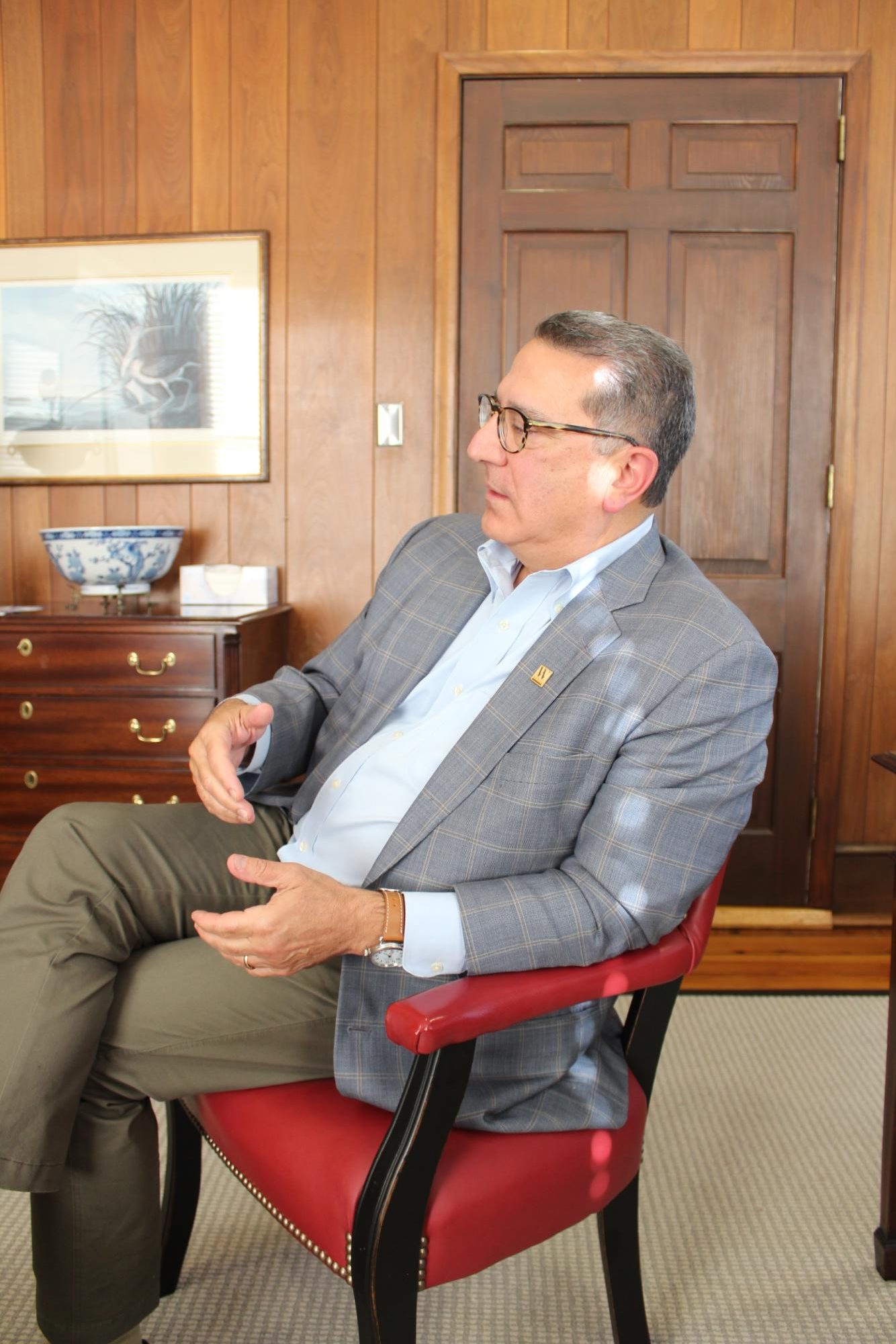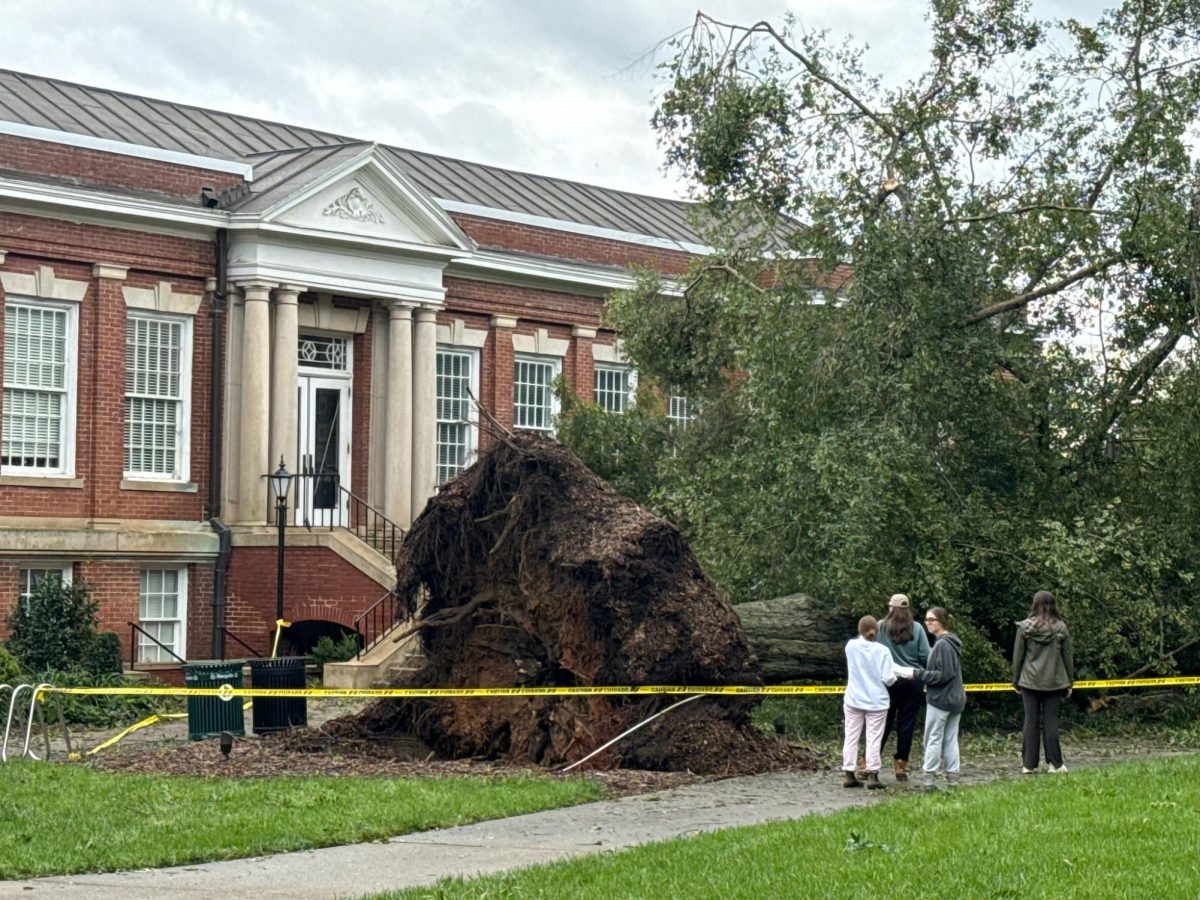Dark wood panels cover the walls, cases and shelves of historical antique materials. Light peaks into the boardroom as the members file in. It is Oct. 15, and the cabinet of Wofford College is convening for its weekly, two hour meeting.
President Nayef Samhat was once a first-generation college student, working for a family owned business in Detroit, Mich. Samhat worked his way from undergraduate education, to a masters, and eventually, a doctorate. Not only that, he became a professor, provost and later President of Wofford College.
Those that meet President Samhat are met by his welcoming and talkative self. He truly desires to get to know students, parents, faculty and staff in any capacity.
Leader of the college, Samhat runs meetings with other staff leaders, the president’s cabinet. Guiding each area of the College from Equity and Community Initiatives to Marketing and Communications. Each area is managed by a representative in the president’s cabinet.
Though not every meeting includes controversial policy decisions on the college, the cabinet holds control over every aspect of Wofford’s day-to-day operations. The cabinet meets weekly in the DuPre Administration Building’s Chandler boardroom.
Former Dean of Students Roberta Hurley ‘81 manages the agenda. She sends email after email, ensuring the members of the cabinet and the board of trustees are well informed on the happenings of the college. Hurley attended Wofford from 1977 to 1981. She has served in different offices across campus from admission, to the president’s office.
Beth Wallace ‘82, current dean of students, remains a champion of the students, bringing up key issues of student concern: parking. Wallace, also a Wofford graduate, began working at Wofford in the wellness center.
Scott Kull, newcomer to the cabinet, has served Wofford for six months as director of athletics. His shy demeanor seems unsuited to the responsibilities of his job. It’s safe to say Kull is still learning his way around the college.
Calhoun Kennedy, vice president of philanthropy and engagement centers his role around supporting the college financially through donor efforts. He brings in the money. From leaf blowers to golf carts, to donated buildings, Kennedy is to thank.
Managing the finances, however, is the role of Chief Financial Officer, Chris Gardner. Gardner is analytical, and is typically assured and comfortable being the nay-sayer in the room.
A vocal academic and leader in college leadership, Dwain Pruitt’s brilliant mind and quick wit is a valuable tool for the cabinet to utilize. Speaking truth and context to all situations is Pruitt’s superpower.
Responsible for hiring faculty and managing the big-picture academic offices of the college, Tim Schmitz doesn’t have complete authority to fire negatively rated professors like students might think. Rather, Schmitz, like all institutions of higher education, grants faculty autonomy over the curriculum.
Brand Stille interacts with bringing in new talent to Wofford to keep the college’s legacy continuing. His office is responsible for gauging trends in class size and enrollment. Don’t worry, the college is not planning on expanding the size of the student body anytime soon.
Samhat, the leader of the group, works to establish trust and camaraderie upon the members of the cabinet. He leads the team responsible for running the college. Samhat works to aid and empower this dynamic team, instilling in them confidence to make decisions in the best interest of the students and the longevity of Wofford.
“Pick smart people who know what they’re doing and let them do it,” Samhat said.





